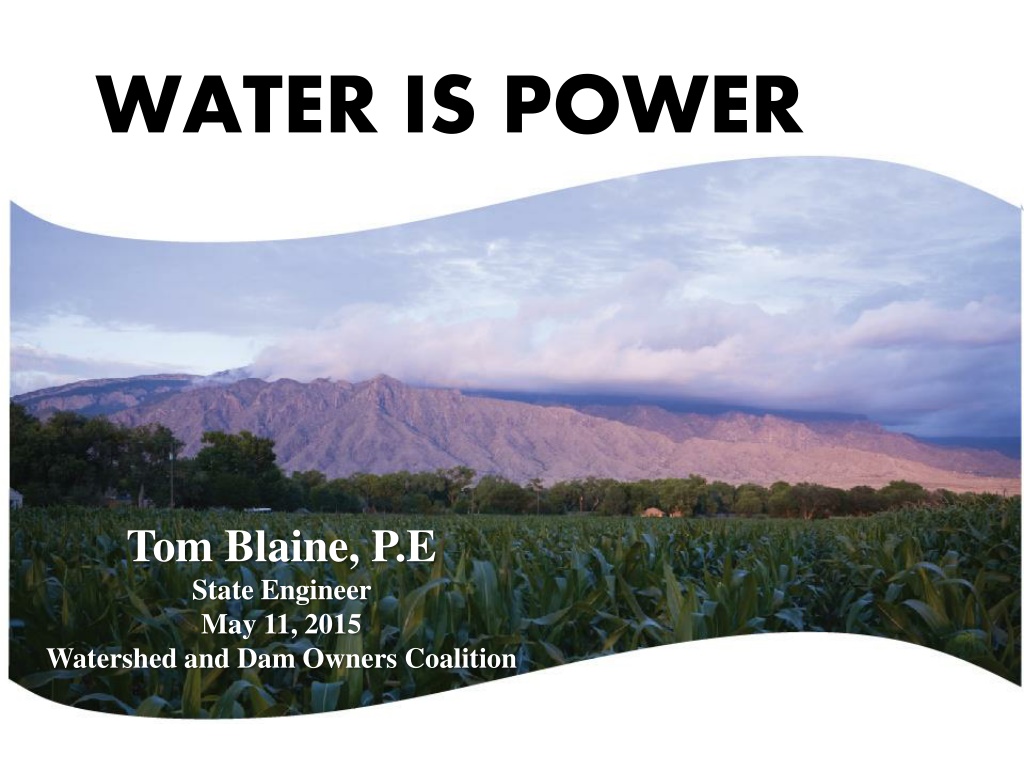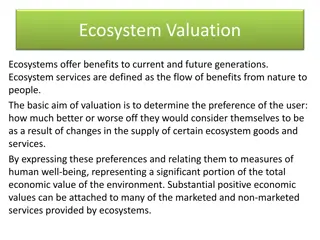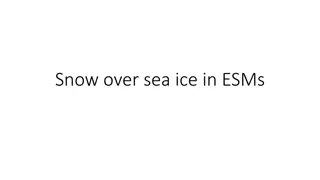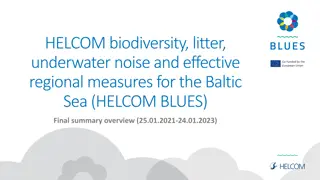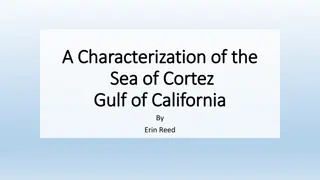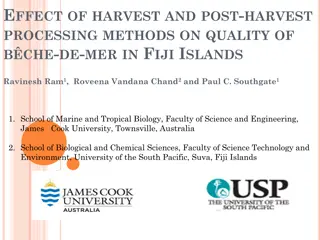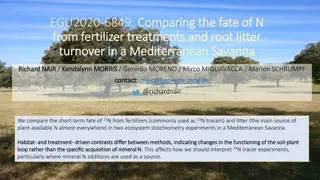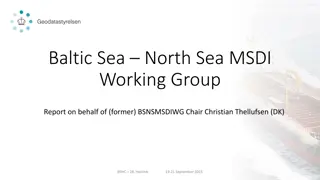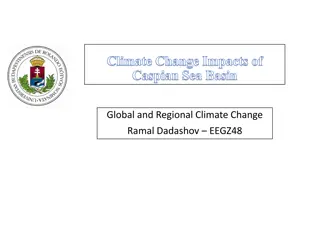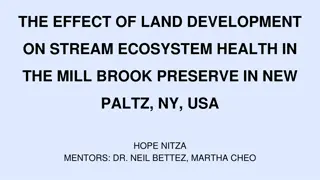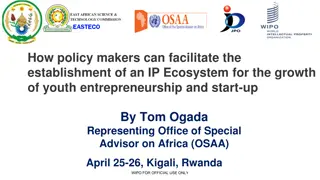The Impact of Human Activities on the Aral Sea Ecosystem
The Aral Sea, once one of the world's largest lakes, has dramatically shrunk due to Soviet irrigation projects, leading to severe environmental consequences. The region's fishing industry has been devastated, causing a significant decline in the sea's size and water levels. This environmental disaster serves as a stark reminder of the consequences of mismanagement of natural resources.
Download Presentation

Please find below an Image/Link to download the presentation.
The content on the website is provided AS IS for your information and personal use only. It may not be sold, licensed, or shared on other websites without obtaining consent from the author. Download presentation by click this link. If you encounter any issues during the download, it is possible that the publisher has removed the file from their server.
E N D
Presentation Transcript
WATER IS POWER Tom Blaine, P.E State Engineer May 11, 2015 Watershed and Dam Owners Coalition
Thank You Watershed management Dam safety PMP Providing Water Storage All critically important and often unnoticed jobs
Its easy to understand the importance of your work when we consider the impacts of other failed projects
Management of a Watershed: The Aral Sea
Caption: Aral Sea. Fishing boat on the Aral Sea before its destruction. The Aral Sea was a lake lying between Kazakhstan in the north and Karakalpakstan, an autonomous region of Uzbekistan, in the south. Formerly one of the four largest lakes in the world, with an area of 26,300 sq miles, the Aral Sea has been steadily shrinking since the 1960s after the rivers that fed it were diverted by Soviet irrigation projects. By 2007, it had declined to 10% of its original size. By 2009, the south eastern lake had disappeared and the south western lake had retreated to a thin strip at the extreme west of the former southern sea. The shrinking of the Aral Sea has been called one of the planet's worst environmental disasters and the region's once prosperous fishing
The Aral Sea in 1989, and 2014
Scale, Displacement of Citizens Example: Three Gorges Dam, China
The most powerful hydroelectric project in history, China s Three- Gorges dam has slowed the Earth s rotation down by 0.06 microseconds.
https://www.mtholyoke.edu/~lpohara/Pol%20116/Images/yangtzeriverdam.jpghttps://www.mtholyoke.edu/~lpohara/Pol%20116/Images/yangtzeriverdam.jpg
Money Fixing the Problem? Tanzania
Throwing Money at the Problem World Bank Failure in Tanzania http://caracaschronicles.files.wordpress.com/2012/10/money-wasted.jpeg
2007 Problem 54% of the population does not have adequate access to drinking water $1.4 billion Water Sector Development Program (WSDP) was appropriated to solve the problem showed signs it was not working after five years, the World Bank and other organizations provided even more money without first investing in identifying new solutions to old problems. The initial goal was ambitious: to bring improved access to water to 65 percent of rural Tanzanians and 90 percent of urbanites by 2010, and continue until each and every citizen had safe drinking water.
2007 Solution Spend $1.4 Billion to bring safe drinking water to 65% of the rural areas and 90% of the urban areas
http://www.humanosphere.org/wp-content/uploads/2014/12/DSC_0088.jpghttp://www.humanosphere.org/wp-content/uploads/2014/12/DSC_0088.jpg
http://www.globalpost.com/sites/default/files/styles/w768/public/photos/2014-November/2014tanzania_mtumbatu_001.jpg?itok=-FT1d5o3http://www.globalpost.com/sites/default/files/styles/w768/public/photos/2014-November/2014tanzania_mtumbatu_001.jpg?itok=-FT1d5o3 $1.42 Billion spent but fewer people have access to water than before.
We need to Plan Manage Construct All of our projects in New Mexico
New Mexico Watershed and Dam Owners Coalition has successfully worked with stakeholders, the OSE and dam owners to build and improve dam safety statewide
2014 Capitol Outlay Governor Martinez secured $89M in funding for water infrastructure projects around New Mexico include funding to repair damaged dams.
Looking Forward Opportunities to: Leverage available funding Coordinate efforts for rehab work Continue to create Emergency Action Plans.
2015 Priorities 1. Streamlining the OSE permitting process 2. Water Rights Adjudications 3. Defending New Mexico s water 4. Active Water Resource Management 5. State and Regional Water Planning 6. Building a Sustainable Water Supply 7. Indian Water Rights
